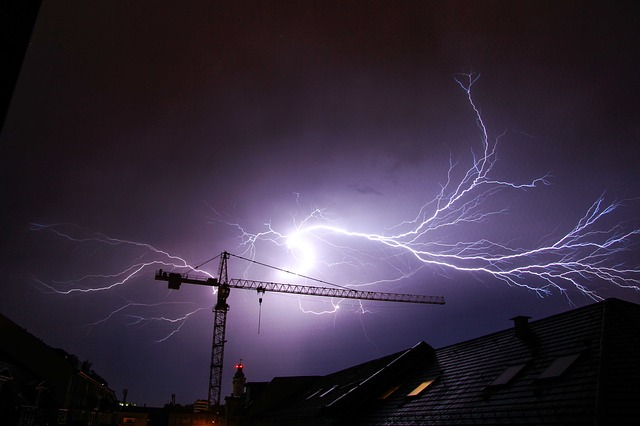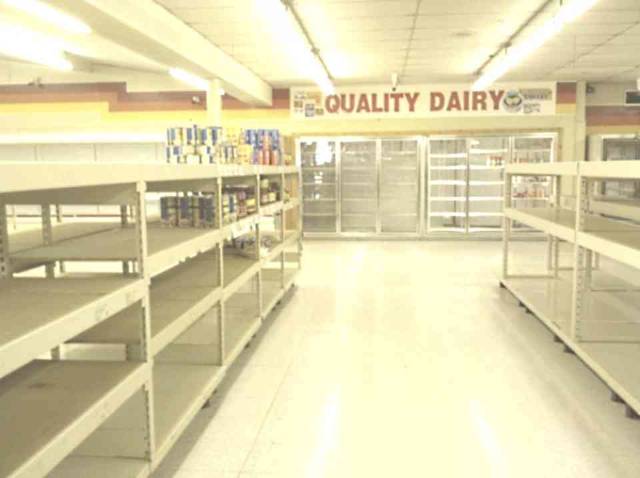When disaster strikes, like a fire, flood, hurricane, or an epidemic, and utilities and supply chains get disrupted, you might see much higher prices for goods that yesterday were cheap. This is called price gouging.
For instance, in 2017 after hurricane Harvey struck Texas, in some locations gas prices shot up to $20 per gallon, water went to $8.50 per bottle, and hotel nights almost tripled.
Even franchisors washed their hands of the stores that did this, severing ties and calling them "egregious and unethical".
Why do people revolt from price gouging?
Well, I suppose that's viscerally clear. When you need the stuff most, that's when it gets 10x as expensive.
Keep reading!
What do people do to prevent price gouging?
When the hurricane struck, Texas already had state laws forbidding price gouging. Possibly not everyone followed them, as per the article.
What the article does not say: those that did follow the laws had their shelves emptied in record time, using "first come, first serve", at much less profit.
What might happen if price gouging were let loose?
- Suppose you didn't buy the $8.50 bottle of water, not needing it too much, and being able to live for a day without water, while you think some more.
- After that, suppose a father came and bought the last 5 bottles for his sick daughter that might die if she didn't get some.
- If the store had sold the water cheaply, there would have been none left for the father.
- As for you, perhaps you think about the high price, and figure you can drive somewhere less affected, where it's cheaper, and buy some there. Hmm, perhaps, even bring some back and sell it - people will surely need it, and you might price it cheaper than the current profiteers, but still make non-negligible money.
- Others might reach the same conclusion, and do the same, and get rewarded by profit while the shortage lasts.
Of course, you can't just start doing this when a hurricane strikes - commerce in many countries requires a license, and they couldn't just let regular people do it, gasp!
Still, if you were an authorized merchant, and could take advantage of the situation, you might do so, instead of your regular business. This would alleviate the shortage, and reward you for your endeavour through profit.
On the other hand, if you were a particularly greedy merchant, you might set your prices too high - such that very few people, if any, buy your products. In that case, it's your loss - you did not make the most money from the disaster.
- If the price is too low, you sell all of your stock, but some people still need it badly and might have paid more
- If the price is too high, you are left with your stock at the end of the crisis, and have lost potential clients at lower prices
A business gets the most profit by setting the price right, so that number of sales * profit per item is maximized.
My impressions
Banning price gouging ensures the disappearance of the profit, and therefore, the resources. People will be forced to go somewhere else for water, and will have no financial motive to bring any back - it is not worth transporting heavy, cheap, and voluminous water for long distances.
People are forced to rely on themselves, friends, charity, or on government aid, which is what the government wants - more control over everyone.
That is how price signalling (sometimes known by the dirty word "gouging") works. It directs resources from where they're plentiful to where they're needed, while rewarding people prudent enough to stockpile what might be needed direly (sometimes known by the dirty word "speculators").
My suggestions
I believe that, during a catastrophe:
- Price gouging should be only limited when selling to sick/disabled people, and
- there should be no taxes for goods or services sold during a catastrophe, and
- any natural person should be allowed to sell anything without requiring neither a license nor any reporting.
These measures would mobilize the most people and ensure a distributed, spontaneous response to any disaster, instead of making people wait for someone to come and rescue them, like sitting ducks.
- Stores might be able to pay a premium for emergency delivery of goods, instead of waiting empty-shelved.
- Without the fridge running, your food will go bad soon. You could sell it to someone hungry nearby instead.
- Anyone could taxi people to their loved ones for money, without needing a taxi medallion from the city.
- Your neighbor could, say, hook you up to his car charger, and let you charge your phone
Also, there are some pitfalls you need to be aware of:
- fraudsters could sell you contaminated water as drinking water - make sure the bottle of water is factory-sealed
- same with medicine; make sure it's in factory-sealed packaging before buying
- only buy prepared food from people you trust
- make sure produce looks good and smells good
- make sure home-canned food is at least under vacuum. This means it is sealed, but not necessarily that it is sterile.
In general, you won't get the same experience from a private person as from a licensed store: storage temperature and humidity might not be respected, for example. But the state should allow you to buy at your own risk, at least while it can not guarantee your survival.
Poor people will be affected more strongly by these price variations. Suppose they could barely afford food at the usual price - now it's many times worse. Fortunately, this coin has two sides: they can get rich quick by doing valuable work during the crisis, instead of their usual work, or instead of doing nothing.
People that are poor AND sick/disabled
People that are poor AND sick would have a lot to suffer. They would be unable to shop around looking for smaller prices, and unable to work to take advantage of the situation. But let's say they could reach their usual store, the nearest one.
- If there is price gouging, they will likely find the product they need, but it would be too expensive.
- Potential solution: Legal exceptions for sick/poor people, limiting the price increase, similar to current legislation applying to ALL people.
- Perhaps the state should later reward the store for this, especially if the store is assaulted by lots of such people. This is to prevent businesses from refusing to serve sick customers (as sociopathic as that would be)
- Alternatively, the store could price-in the impact of potential disasters, and refusals should be punished, as is done typically with current legislation.
- Potential solution: Legal exceptions for sick/poor people, limiting the price increase, similar to current legislation applying to ALL people.
- If there is no price gouging, they will probably find an empty shelf when they reach the store.
- Potential solution: mandating that stores hold back some products; similar to parking for disabled; but for water, basic foods, and medicine.
While every resource diverted towards helping the poor sick/disabled slows down the overall disaster recovery, I personally feel this would strike a fair balance.
Should people revolt from price gouging?
As for the feeling of disgust when you see someone price-gouge: you should feel disgust at the scarcity, not the merchant trying to conserve the resource.
People are not your slaves and should not be forced to sell to you for a cheap price. The high price shows you that the resource is limited - and invites you to personally help out or to compete.
When the self-interested profit motive is aligned with the common good, people will hopefully tend towards better behavior.
Video game recommendation
Perhaps you can tell I've played some NEO Scavenger lately. I recommend this game, if you want to see what post-apocalyptic life might look like: sterilizing your own water, hunting, gathering, cooking, transporting goods and selling them. Check out the demo!
As much as I dislike the fact that it's proprietary software, I enjoyed it. I didn't notice it doing anything strange to my computer, and you can safely contain it in a virtual machine if you are worried.
How's this for a disaster plan? Any thoughts?
 danuker | freedom & tech
danuker | freedom & tech 

Comments